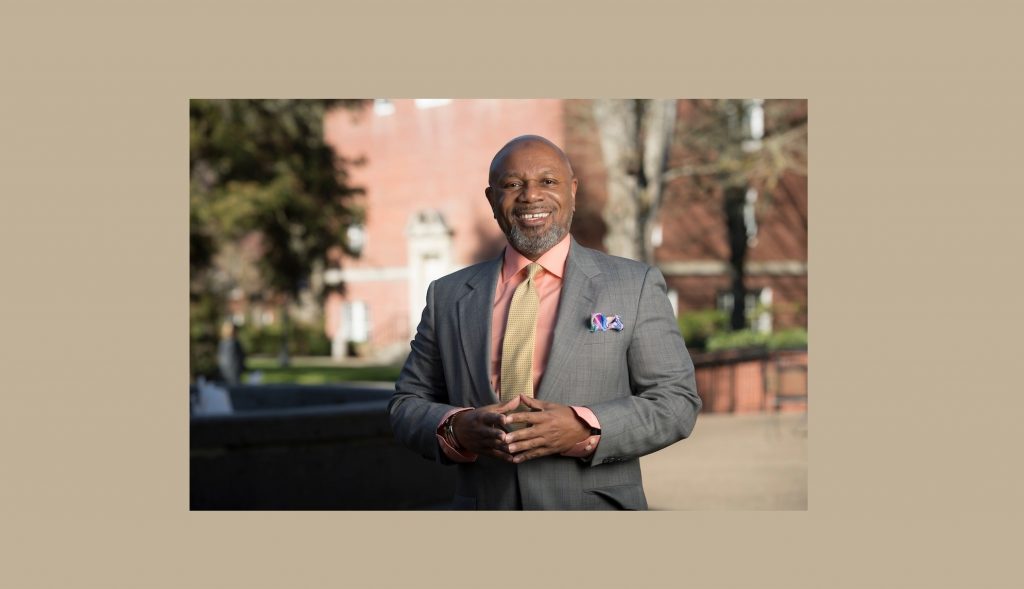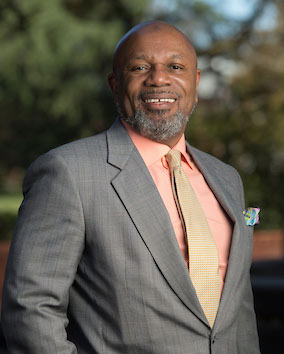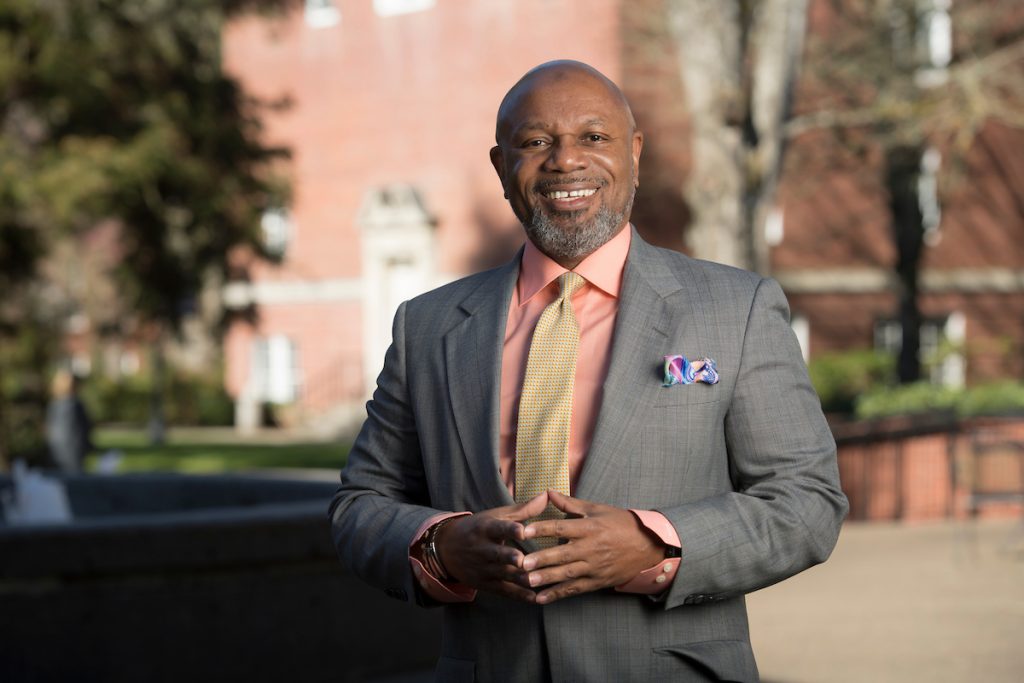
Dr. Miles K. Davis is the first black educator to become president of Linfield College in McMinnville, Oregon. Prior to becoming President, he served as the George Edward Durell Chair of Management and Dean of the Harry F. Byrd, Jr. School of Business at Shenandoah University in Winchester, Virginia. Dr. Davis was the founding director of the Institute for Entrepreneurship at the Harry F. Byrd, Jr. School of Business. Dr. Davis is also the host of an award winning radio show on small business and he has numerous media citations.
Dr. Davis graduated first in class earning his master’s degree in human resource development from Bowie State University in Maryland in 1982. In 2002, he completed his Ph.D. in Organizational Behavior and Management from George Washington University. With his continuous desire to obtain knowledge Davis also enrolled in MDP program at Harvard University in 2012.
Dr. Miles K. Davis: I was recruited from another University to help bring about change to my present institution.
Dr. Emad Rahim: How would you describe your leadership style and management principles for success?
MKD: My style is based within certain principles: Authenticity, Integrity and Adaptability. While there are indeed individuals who have achieved “success” without these traits I do not believe it is sustainable.
E. R: Please tell us a little about your University, its mission and student population?
MKD: Linfield University, a private, comprehensive institution located in the Pacific Northwest, connects the traditional liberal arts with practical education through collaborative, service and experiential learning opportunities. Linfield is nationally recognized for its strong teaching faculty, outstanding academic programs and distinctive international emphasis. Linfield educates students to become global citizens, with more than 40 percent of all graduates participating in study abroad courses.
E. R: During your time at Linfield University, what institutional initiatives are you most proud of and why?
MKD: I am extremely proud of our outreach to students who did not see Linfield as a viable option to them. We have increased our number of underrepresented minorities and first generation students significantly. We have increased enrollment significantly and at the same time created pathways to economic mobility to populations that will have ripple effect in their families for generations to come.
E. R: How is the University addressing campus safety and academic accessibility during the global pandemic?
MKD: We have tested every student as they returned to campus. We have had under five cases of Covid on our campus. We have a mandatory mask policy and practice social distance. We disinfect all spaces on a regular basis. We do not allow people on campus who do not have direct business with the University.
More Higher Ed thought leadership Series Interviews
Emad Rahim Interviews Dr. Mary Hawkins, President of Bellevue University
Emad Rahim Interviews Merodie A. Hancock, PhD President, Thomas Edison State University
E. R: With more universities going online or offering hybrid options, what type of things is the university doing to set your programs apart?
MKD: At Linfield we provide much more than an education to our students. We are in many cases the only place where a student gets health care, three meals a day, reliable internet, consistent computer access, a single room to sleep in; we are social service agency. We do this along with the maturation that comes from interacting with diverse populations. Online education is not the answer for so many young people. We provide an experience that recognizes that what goes on in a classroom is only part of the educational experience.
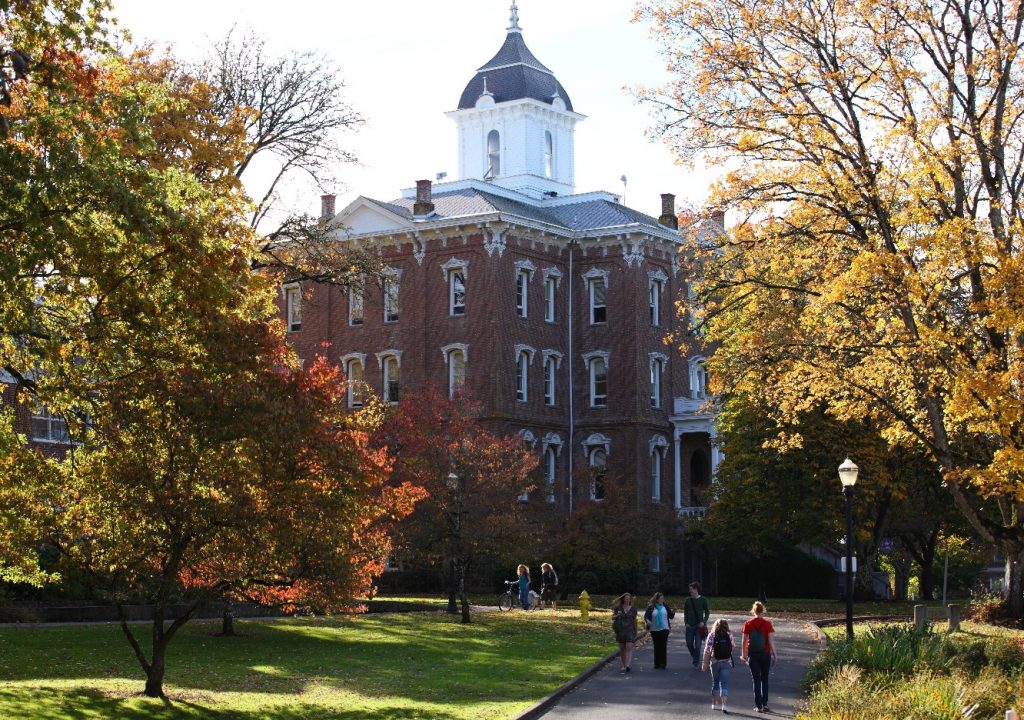
E. R: With COVID-19 affecting how every campus is operating around the world, what ways can curriculum innovation and technology help to keep college students and faculty safe?
MKD: Curriculum and technology is only relevant to what you are trying to teach. The question that every college and university has to ask itself is what is its true value proposition? Why do students come to a particular institution and what will they leave that institution with.
E. R: In your opinion, what role does higher education play in responding to a global pandemic like COVID-19 and support social justice causes like Black Lives Matter?
MKD: Higher education exists for more than preparing people to get a job. It exists to help produce effective citizens. It exists to help produce problem solvers. Colleges and universities exists to help develop the people who can find a solution to Covid-19 and thoughtfully engage matters of social justice.
E. R: What is your advice to academic leaders that are responding to all these growing crises on their campuses for the first time?
MKD: Leaders need to get of their offices and engage the world. They need to think about what their institutions stand for and what is the moral/ethical compass that guides that individuals life. Once you know these things then you have the capability to address any challenge or crisis as you have a foundation to act from. In the absence of a moral/ethical compass leaders are merely blowing in the wind.
E. R: Many of our subscribers are new leaders in higher education or aspiring to become a university administrator, what recommendations or advice would you give them as they move forward in their careers?
MKD: In order to be a successful and effective leader, you must first come to know yourself. Additionally, anyone who aspires to lead or move into higher levels of responsibility should first ask themselves “why”? To aspire to responsibility is also to inherit accountability. You must understand what that truly means.
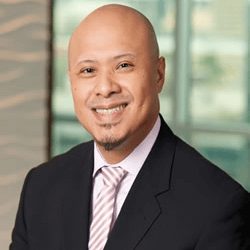
Dr. Emad Rahim is an award-winning entrepreneur, educator, author, community leader and TEDx Speaker. He currently serve as the Endowed Entrepreneur-in-Residence at Oklahoma State University and teaches at the Jack Welch Management Institute in the Executive MBA program. He was recognized by the United Nations Foundation as a 2013 Empact100 Honoree for his social entrepreneurship work, received a Congressional Award for his community service and was the recipient of the Forty Under 40 Business Leadership Award sponsored by Syracuse University. His personal story was turned into a short documentary, “Against the Odds,” and featured in the Huffington Post and Forbes. He co-authored “Leading Through Diversity: Transforming Managers Into Effective Leaders” and “The 4-Tions: Your Guide to Developing Successful Job Search Strategies” and is a frequent contributor to the Refractive Thinker book series, CEO Magazine, TweakYourBiz and YFS Entrepreneurship Magazine. Fellow him on Twitter @DrEmadRahim

